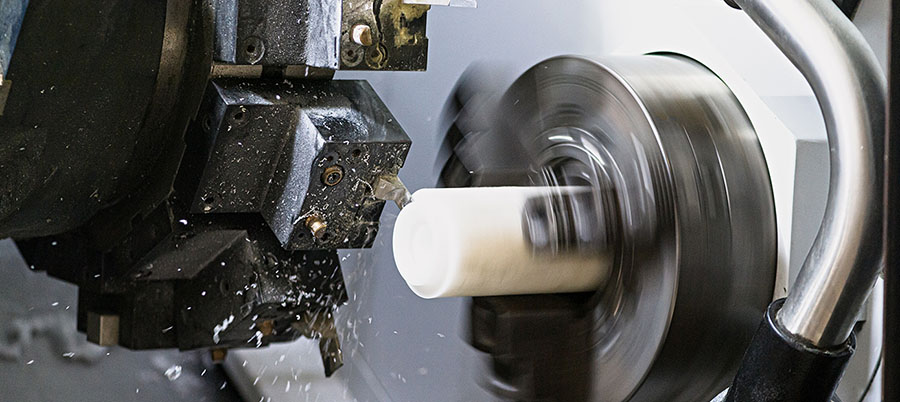In the modern manufacturing landscape, precision and efficiency are paramount, and CNC machining has emerged as a critical technology for achieving these goals. While CNC machining is often associated with metals, CNC plastic turning services have become increasingly vital due to the versatile applications and advantages of plastic materials. This post delves into the importance, benefits, and processes involved in CNC plastic turning services.
The Importance of CNC Plastic Turning Services
Plastic materials are ubiquitous in a variety of industries, including automotive, aerospace, medical, electronics, and consumer goods. The need for high-precision plastic components has grown significantly, and CNC plastic turning services provide an ideal solution for producing these parts with accuracy and consistency.
Versatile Applications:
Plastic components are used in diverse applications, ranging from intricate medical devices to robust automotive parts. CNC plastic turning services can handle a wide range of plastic materials, making them suitable for various industries.
Custom Solutions:
CNC plastic turning allows for the creation of custom parts tailored to specific requirements. This capability is essential for industries that demand unique and specialized components.
Prototyping and Production:
CNC plastic turning services are invaluable for both prototyping and full-scale production. Rapid prototyping enables quick iterations and design validations, while the same precision can be maintained in mass production.

Benefits of CNC Plastic Turning Services
The adoption of CNC plastic turning services offers numerous advantages, enhancing the overall manufacturing process and product quality.
Precision and Accuracy:
CNC plastic turning machines operate with high precision, ensuring that each component meets exact specifications. This precision is crucial for applications requiring tight tolerances and complex geometries.
Consistency:
CNC machining provides consistent results, reducing variability between parts. This consistency is essential for maintaining quality standards and ensuring that each part performs reliably.
Efficiency and Speed:
CNC plastic turning services streamline the manufacturing process, reducing lead times and increasing production speed. Automated processes minimize human intervention, enhancing efficiency.
Cost-Effectiveness:
While the initial setup cost for CNC machining may be higher than traditional methods, the long-term benefits include reduced labor costs, minimized material waste, and lower error rates, leading to overall cost savings.
Material Versatility:
CNC plastic turning services can work with a variety of plastic materials, including ABS, polycarbonate, nylon, PEEK, PTFE, and more. This versatility allows manufacturers to choose the best material for their specific application.
CNC Plastic Turning Process
The process of CNC plastic turning involves several key steps, each contributing to the production of high-quality plastic components.
Design and Programming:
The process begins with creating a detailed design of the component using CAD (Computer-Aided Design) software. This design is then translated into a CNC program that guides the turning machine.
Material Selection:
The appropriate plastic material is selected based on the component’s requirements. Factors such as strength, durability, temperature resistance, and chemical compatibility are considered.
Setup and Calibration:
The CNC turning machine is set up and calibrated to ensure precise operation. This includes securing the plastic material in the machine and configuring the tool paths.
Turning Operation:
The CNC machine uses various cutting tools to shape the plastic material according to the programmed design. The machine rotates the material while the cutting tool removes excess material to create the desired shape
Finishing:
After the turning operation, the component may undergo additional finishing processes, such as polishing or deburring, to achieve the required surface finish and dimensions.
Inspection and Quality Control:
Each component is thoroughly inspected to ensure it meets the specified tolerances and quality standards. Advanced inspection techniques, such as coordinate measuring machines (CMM), are used to verify accuracy.
Applications of CNC Plastic Turning Services
CNC plastic turning services are utilized in a wide range of applications, showcasing the versatility and importance of this manufacturing method.
Medical Devices:
Precision plastic components are essential for medical devices, including surgical instruments, implants, and diagnostic equipment. CNC plastic turning ensures the accuracy and reliability of these critical parts.
Automotive:
The automotive industry relies on CNC plastic turning for producing components such as dashboards, housings, and connectors. The lightweight and durable nature of plastics make them ideal for automotive applications.
Electronics:
In the electronics industry, CNC plastic turning is used to create enclosures, connectors, and other components that require high precision and insulating properties.
Consumer Goods:
CNC plastic turning services are also employed in the production of consumer goods, such as household appliances, toys, and sporting equipment, where precision and consistency are crucial.
Conclusion
CNC plastic turning services play a vital role in modern manufacturing, providing precision, efficiency, and versatility. By leveraging advanced CNC technology, manufacturers can produce high-quality plastic components that meet stringent requirements across various industries. Whether for prototyping or full-scale production, CNC plastic turning offers numerous benefits, making it an indispensable tool in the pursuit of innovation and excellence in manufacturing.



